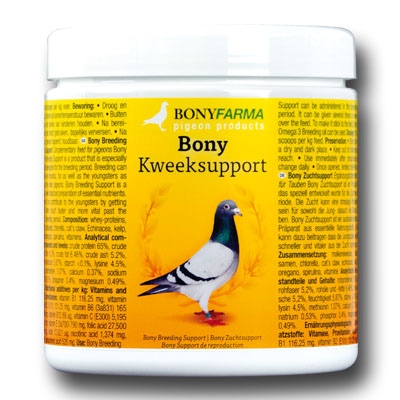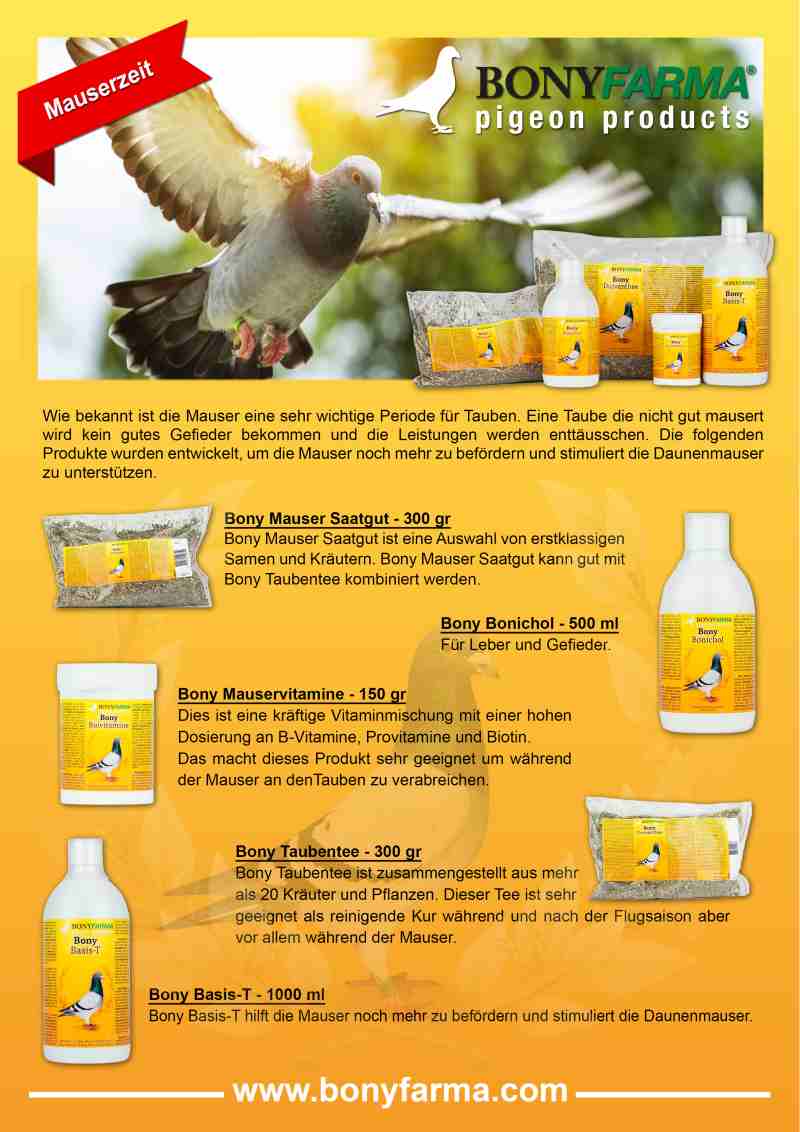In NOVEMBER 2021 – by Dr. Peter Boskamp…

The breed
The winter months
As the winter months approach, many breeders start making plans on how to match their pairs. Finding new possible pairs and re-pairing them is usually an interesting activity. Do the newly bought pigeons also fit? Regarding the latter, a Danish breeder who recently visited the practice made a remarkable remark. These pigeons simply need to be quarantined for a while before being placed with their own breeders. It is best to have the pigeons checked for hidden infections. But often this is not immediately possible. But I don't want to give breeding ground to the breeders who no longer know what happened the year after a sublime pigeon year. “I do exactly the same as last year, but no matter what flight, I keep losing experienced pigeons.” I always ask if the breeder has bought new pigeons that have been placed with his racing or breeding pigeons. Sometimes these new pigeons are even brought along.
Bully (Bully)
Not always, but often enough, an infection with the "Bully" seems to be the cause of the misery. The winter months are primarily the time when we detect this bacterium during controls with a throat swab. However, we advise breeders who have been detected with this bacterium not to start treatment immediately. It's like carrying water to the sea. Since this bacterium can form a kind of mucus layer (matrix), it can survive well in a cold and damp blow. The pigeons in these lofts

therefore, cure is not of much use. However, the fields can be properly disinfected with Virkon S® in order to reduce the infection pressure of these and other pathogens. Experience has shown that disinfection in deep autumn limits the problem, but this germ is usually detectable again in early spring.
Surprised
Many of these breeders tell me that their pigeons only get in shape later because they have a garden loft. Heat lowers the infection pressure on this bacterium, keeping the pigeons in shape can come. Even these breeders are very surprised when they look for a targeted treatment against this germ in early spring achieve immediate success be able. But in principle, in the winter months, it means disinfecting like wiping with the faucet open is. Paratyphoid cures during this time can make the problem worse, if this germ is present. Therefore it is best to examine new pigeons to leave before they are placed with the other pigeons. The disease transmission happens quickly.
Negative impact on fertility
With many things in the pigeon sport you walk assuming everyone knows it. But in the last few weeks I've noticed that simple things are not known to everyone. Often not with the younger breeders. For example, some breeders wanted to treat the pigeons against trichomoniasis just before the breeding season cures. However, it is better not to do this. All remedies against trichomonas (so-called imidazole compounds) have a negative effect on fertility out of. The quality of the sperm is negatively influenced for about 6 weeks. In In many cases you will not notice this because there are still enough active ones sperm cells are present. But especially with the older males Sperm quality is sometimes unsatisfactory and (temporary) infertility can also occur. In order to the first round is lost for these pigeons. Therefore, it is better after oviposition to cure with these means.
root cause
For me personally, that's mine Breeding pigeons the only time that the pigeons capsules two days in a row against get trichomonas. Drinking water cures are usually complete in winter breeding ineffective. Dozens of breeders are amazed when their pigeons are infected when they are checked are. Especially if they've just put something in the potions. It's playing no matter which drug is used by whom. The doves drink just too little. That's the reason. If you don't want to bother To administer capsules or pills, then the cure should last at least 8 days the feed to be given. As with all resistances, resistance decreases of trichomonads compared to all drugs used. Old doses are often completely inadequate at this point.
The icing on the cake
In the run-up to the breeding season it can It may be desirable that older pigeons receive additional vitamin E in order to reduce the risk Increase fertility. Like many readers I used to think that focused Supplements that contain only vitamin E would be best suited. However these preparations usually only contain the so-called alpha-tocopherol. Vitamin E. However, it consists of eight tocopherols, each of which has a specific effect. Then, using the right mixture, the body makes the choice the available mix. Artificial products are in the Usually around alpha tocopherol.
Not that this is so disastrous but if you want to do the icing on the cake and work optimally, is it is better to take a natural source of vitamin E, which most, if not contains all forms of the E vitamin. Wheat germ oil is in these Cases a good choice. November is the month that I use wheat germ oil as a binder use for the Bony base core and feed the Bio BMT.
Nice youngsters

After mating, our pigeons are fed breeding oil instead of wheat germ oil as it is high in omega-3 fatty acids (EPA and DHA) to support optimal brain development. The aim is to optimize the content of this oil in the egg. This isn't necessary during the incubation period, but just before the eggs hatch, I start this along with Bony Breeding Support. The Bony Breeding Support helps ensure that the youngsters have everything they need in the first few weeks of life. I used to give it about 3 times a week. Now at a slightly lower dose every day until weaned. More beautiful young is the bottom line.
Good luck!

Advertising:




